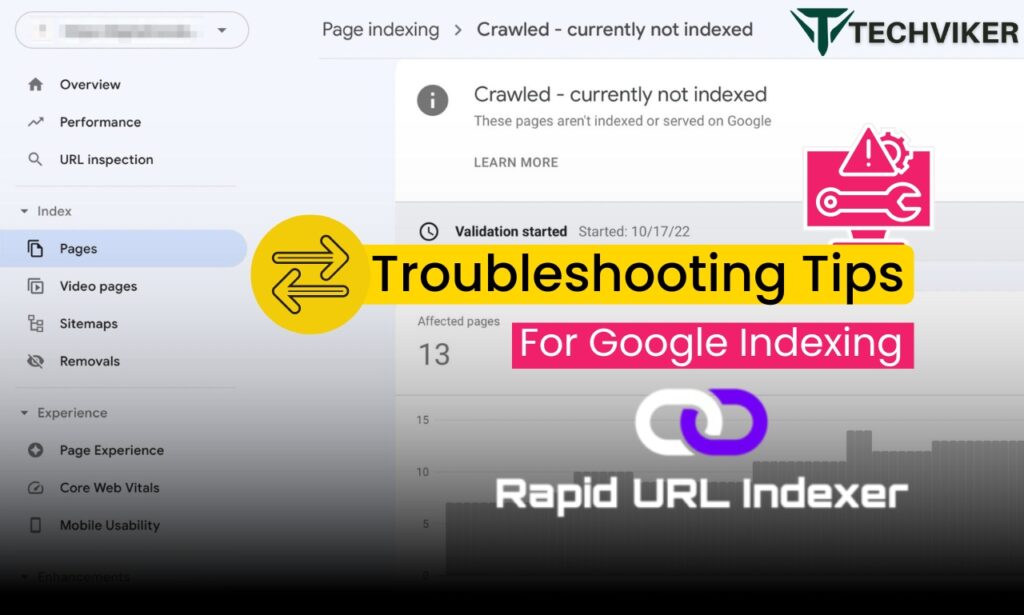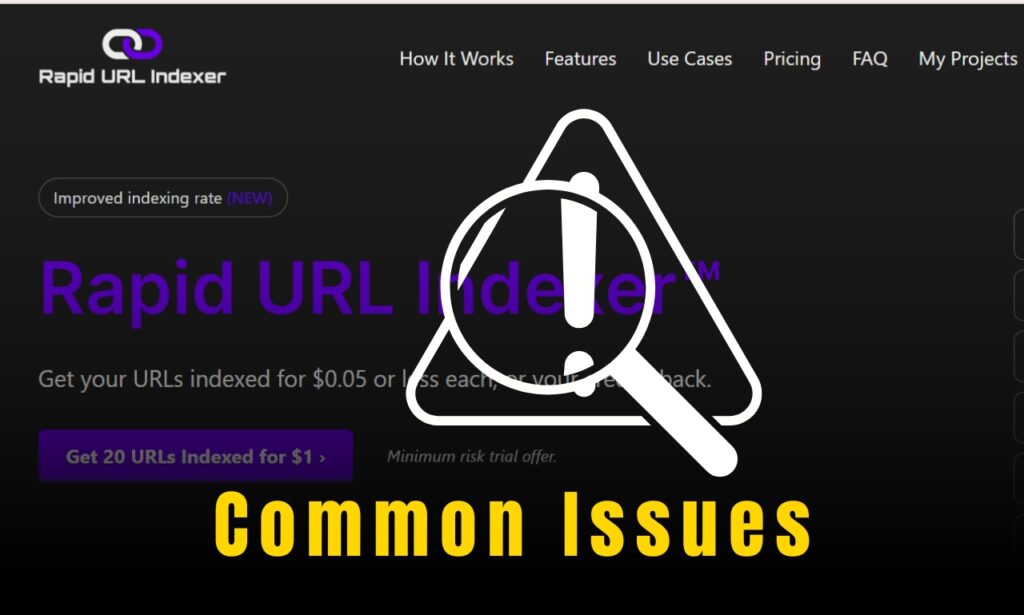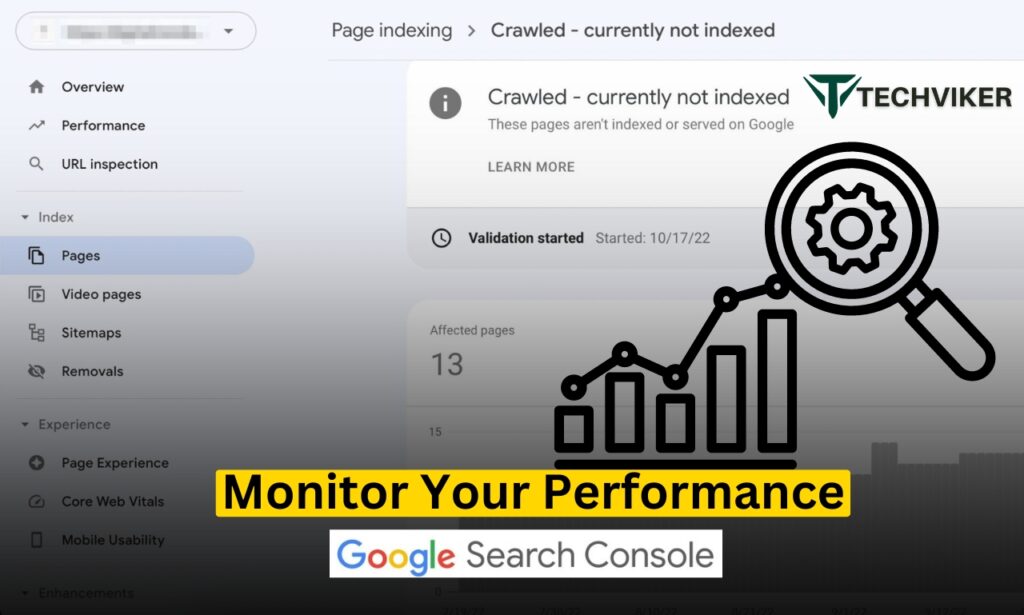Troubleshooting Tips for Google Indexing Service RapidURLIndexer.com

If you’re eager to get your website noticed, using a reliable indexing service is crucial. One popular tool for this is the Google Indexing Service RapidURLIndexer.com. This service helps your website show up in Google search results faster. However, you might run into some problems along the way. Don’t worry! In this article, we’ll explore common issues with the Google indexing service rapidurlindexer.com and provide easy troubleshooting tips to get you back on track.
What is RapidURLIndexer.com?
Before we dive into troubleshooting, let’s first understand what the Google Indexing Service RapidURLIndexer.com is. It’s a specialized tool designed to help you submit your URLs to Google so they can be indexed quickly. Indexing is important because it means that Google recognizes your website and adds it to its vast database. When someone searches for topics related to your site, it becomes easier for them to find you.
The Google indexing service rapidurlindexer.com is particularly useful for new websites or pages that you want to promote quickly. By using this service, you can boost your site’s visibility and attract more visitors.
Common Issues with RapidURLIndexer.com

As great as the Google Indexing Service RapidURLIndexer.com can be, you might encounter some problems. Let’s look at some common issues and how to solve them.
1. URLs Not Submitting
One of the most frustrating problems is when your URLs don’t submit properly. You may see an error message, or it might seem like nothing happens at all.
Tips to Fix:
- Check Your Internet Connection: Sometimes, a weak connection can cause problems. Ensure your internet is working well by visiting other websites.
- Try a Different Browser: If one browser isn’t working, switch to another. Different browsers can behave differently, and sometimes one might have issues that the others don’t.
- Clear Your Cache: Your browser saves old information that can mess things up. Clearing your cache can help resolve this issue. To do this, go to your browser settings and find the option to clear browsing data.
2. Slow Indexing
After submitting your URLs, you might notice it takes a long time for them to show up in Google search results. This can be frustrating!
Tips to Fix:
- Be Patient: Sometimes, indexing can take a while. Google has a massive number of websites to review, so your submission might just need more time.
- Check Your Sitemap: A sitemap is like a map for Google that helps it find your pages easily. Make sure your website has a sitemap and that it’s submitted correctly.
- Use the Google Indexer Tool Rapid URL Indexer: This tool helps speed up the indexing process. It’s specifically designed to notify Google that your pages are ready for indexing, increasing your chances of getting noticed faster.
3. Duplicate URLs
Submitting the same URL multiple times can lead to problems. Google may not index it if it recognizes it as a duplicate.
Tips to Fix:
- Submit Unique URLs: Ensure that each URL you submit is different. If you have similar pages, consider merging them or modifying the content to create unique versions.
- Check for Typos: Small mistakes can make a URL appear different. Double-check your URLs for any errors before submission.
4. Issues with Robots.txt
Every website has a file called robots.txt that tells search engines what they can and can’t look at. If this file is set up incorrectly, it can block Google from indexing your site.
Tips to Fix:
- Review Your Robots.txt File: Check if any rules are blocking Google from accessing your pages. You can find your robots.txt file by typing your domain followed by /robots.txt (for example, www.yourwebsite.com/robots.txt).
- Make Changes if Necessary: If you find rules that prevent indexing, consider changing them. Just be cautious not to block important pages that you want indexed.
5. Low-Quality Content
Google wants to show the best websites to its users. If your site has low-quality or duplicate content, it might not get indexed.
Tips to Fix:
- Improve Your Content: Make sure your content is original, informative, and valuable to your audience. Quality content is more likely to be indexed and rank well in search results.
- Use Keywords Wisely: Include relevant keywords naturally within your content. This helps Google understand what your page is about and can improve indexing chances.
6. Account Issues
Problems may also arise from your account on RapidURLIndexer.com. If your account is inactive or has other issues, it can affect your indexing.
Tips to Fix:
- Check Your Account Status: Log in to your account and make sure everything is active. If there are alerts or messages, make sure to address them promptly.
- Contact Support: If you can’t figure out the problem, reach out to customer support. They can assist you with troubleshooting any issues related to your account.
7. Monitor Your Performance

Once you’ve submitted your URLs and addressed any issues, it’s important to monitor your site’s performance. This will help you understand if the indexing is working as expected.
Tips to Monitor:
- Use Google Search Console: This is a free tool that lets you track your website’s performance in Google search results. You can see which pages are indexed and if there are any issues.
- Check for Errors: Look for any crawl errors or indexing issues in the Google Search Console. This tool provides valuable information about how Google interacts with your site.
- Analyze Traffic: Keep an eye on your website traffic. If you notice an increase after using the Google indexing service rapid URL indexer, it’s a good sign that your efforts are paying off.
8. Regular Updates
Finally, keeping your website updated is essential. Fresh content signals to Google that your site is active and worth indexing.
Tips for Regular Updates:
- Post New Content Frequently: Adding blog posts, articles, or updates can help keep your site fresh and engaging.
- Revise Old Content: Don’t forget about your older pages! Updating them with new information or making them more relevant can help improve your indexing.
Final Thoughts
Using the Google Indexing Service RapidURLIndexer.com is a great way to get your website noticed in search results. However, it’s important to be aware of common issues and know how to troubleshoot them effectively.
By following these tips, you’ll be better equipped to handle problems and maximize the benefits of the Google indexing service rapid URL indexer. Remember, patience is key. Sometimes, things might not work perfectly at first, but with persistence and the right strategies, you can improve your website’s indexing and visibility.
Keep these troubleshooting tips in mind as you navigate the world of web indexing, and soon enough, your site will be indexed and ready for users to find in Google search results.

